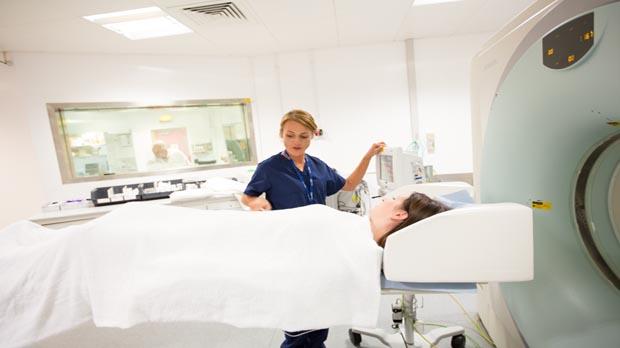
Around 1 in 5 people diagnosed with cancer in the UK take part in a clinical trial.
This was a trial to see whether a service that had been set up for people with breathlessness was helpful, and how it worked best.
At Addenbrooke’s hospital, a Breathlessness Intervention Service (BIS) has been set up. The service is run by



They see people initially, either in hospital or at home. Then either see them again or contact them by telephone a couple of times over the following few weeks. The aim of the service is to help people cope with breathlessness.
Researchers wanted to find out if the service was helpful for cancer patients and their carers. To do this, they compared people who had standard care for breathlessness for 2 weeks with people who had help from the service. The aim of this trial was to find out how well the Breathlessness Intervention Service worked and if it cost less than standard care.
The researchers found that the Breathlessness Intervention Service (BIS) worked well for people with cancer.
This was a phase 3 trial. It was a randomised trial that recruited 67 people who had been referred to the BIS. They were put into 1 of 2 groups. The people taking part couldn’t choose which group they were in, and the researchers didn’t know which group they were in.
The 35 people in the 1st group received help from the service as soon as they were referred.
The 32 people in the 2nd group had a delay of 2 weeks before they had help from the service. During this time they received the standard care for breathlessness. After 2 weeks they then received help from the service.
The researchers interviewed people with cancer when they joined the trial and then at week 3 and week 5. Everyone also filled in a questionnaire at each interview. Of the 67 people who joined the trial, the researchers have the results for 54.
The researchers also interviewed a relative or close friend who supported the person with breathlessness (a carer).
The researchers looked at how anxious and depressed people with cancer, and their carers, were when they joined the trial and again at week 3 and week 5. Overall for both, they found that just under half had very high anxiety scores and about a quarter had very high depression scores.
After 3 weeks of the service, both reported feeling less fearful, anxious and worried about breathlessness. They also reported having greater confidence about breathlessness and how to manage it.
Distress due to breathlessness was reduced significantly in people who had help from the Breathlessness Intervention Service compared to those who had standard care. Overall 51 out of the 54 people (94%) reported a positive impact from the BIS.
Between joining the trial and week 3, fewer people in the BIS group went into to hospital or sought help from their GP for their breathlessness.
The researchers concluded that for people with cancer, and their carers, the Breathlessness Intervention Service reduced their worry and fear more than standard care, as well as increasing their confidence in how to manage breathlessness. As fewer people went into hospital, the service would also cost less than standard care.
We have based this summary on information from the team who ran the trial. The information they sent us has been reviewed by independent specialists ( ) and published in a medical journal. The figures we quote above were provided by the trial team. We have not analysed the data ourselves.
) and published in a medical journal. The figures we quote above were provided by the trial team. We have not analysed the data ourselves.
Please note: In order to join a trial you will need to discuss it with your doctor, unless otherwise specified.
Dr Sara Booth
Addenbrookes Hospital
Macmillan Cancer Support
NIHR Clinical Research Network: Cancer
NIHR Research for Patient Benefit (RfPB) Programme
University of Cambridge
If you have questions about the trial please contact our cancer information nurses
Freephone 0808 800 4040

Around 1 in 5 people diagnosed with cancer in the UK take part in a clinical trial.